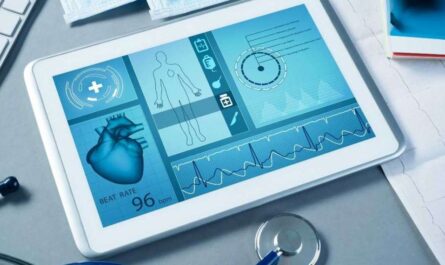
Various Types of Medical Carts
There are various types of medical carts available depending on their intended usage and functionality. Some of the major types include:
Emergency Carts: These carts are used in emergency rooms and operating theatres. They are equipped with essential emergency medication, equipment and supplies required to treat life-threatening conditions. Some common items stored in emergency carts include oxygen tanks, defibrillators, basic surgical equipment, IV pumps and lines, medications for cardiac arrest, traumas etc. Their design ensures quick access to supplies during critical situations.
Medication Carts: As the name suggests, these carts are used to store and transport various medications inside hospitals, nursing homes and other healthcare facilities. They help nurses and doctors access medications round the clock for patients. Medication carts come with secure storage, temperature control and dispensing features to safely manage pharmaceutical inventory.
Procedure Carts: Procedure carts contain necessary supplies and equipment for various clinical or diagnostic procedures. Specialty procedure carts are designed for minor procedures, wound care, examinations, ultrasounds etc. They are mobile and help carry required items to patient bedsides.
Utility/Service Carts: Also known as general purpose carts, utility carts carry miscellaneous daily use items like clean towels, gowns, instruments, paper supplies, binders etc. They help transport various commodities within clinics or hospitals.
Patient Room Carts: These multipurpose carts are stationed inside patient rooms. They hold patient charts, files, belongings and commonly used medical devices like blood pressure monitors, stethoscopes etc. for the convenience of healthcare staff.
Importance of Medical Carts in Healthcare Settings
With healthcare growing in complexity, medical carts have become an integral part of day-to-day operations. Here are some key advantages they provide:
1. Mobility and Accessibility: Since medical carts are mobile by design, they allow storage and transport of supplies, medications and equipment exactly where they are required. This eases accessibility for clinicians and optimizes workflow.
2. Organization: Medical carts offer segregated storage spaces to logically organize various items based on their category, usage, expiration etc. This brings order and prevents loss or wastage of resources.
3. Infection Control: Regular disinfection of cart surfaces helps curb the spread of Hospital Associated Infections (HAIs). Additionally, separate storages for clean and dirty supplies assist in following sterilization protocols.
4. Time Savings: Having essential items readily available on carts saves precious time otherwise spent searching or retrieving them. This allows healthcare teams to focus more on direct patient care activities.
5. Inventory Management: Many advanced carts come equipped with technologies like RFID tags and barcode scanners for real-time inventory checks. This streamlines replenishment processes.
6. Safety: From secure locking to temperature control, medical cart design incorporates multiple safety features to protect sensitive medications, specimens and patient information. This prevents errors, theft and exposure to harmful conditions.
Popular Medical Cart Brands and Models
Major med cart manufacturers offer a wide selection tailored to specific needs. Here are some top brands with exemplary products:
1. Ergotron: They are a leader in medical carts known for lightweight mobility and ergonomic designs. Models like Ergotron® MobileView® ULTRA and MCX are ideal for clinical settings.
2. Waterloo Healthcare: Their SmartStockTM RT Med Carts use RFID to track assets in real-time. Cloud-based remote monitoring adds advanced inventory oversight.
3. Harloff: Harloff provides sturdy carts built for heavy capacities and round-the-clock use. The Intermix Procedure Cart and Infinity Series are reliable options.
4. Modern Solid Industrial: For basic to specialty needs, MSI has dependable carts like the Polypro 1020 and 1120 models.
5. Stanley Healthcare: This brand offers Wi-Fi enabled carts like the Stanley® StoredgeTM that digitally manage medication dispensing.
6. Lakeside Healthcare: Their versatile carts such as Meridian Series can handle multiple roles with accessories and customizations.
With technology integration growing, “smart carts” from Cart Healthcare, Capsa Healthcare and others are enhancing hospital workflows through automated inventory, alerts and telehealth capabilities.
Benefits of Automated Medical Carts
Today’s digitally advanced medical carts assist caregivers and administrators in many new ways:
1. Real-time Visibility: Connected carts provide live inventory updates on stock levels, expiries and item locations on centralized dashboards or mobile apps.
2. Automated Reorders: Based on pre-set thresholds, carts can autonomously generate replenishment requests to streamline supply chain management.
3. Usage Tracking: Data on medical items removed from carts helps understand consumption patterns and anticipate future needs.
4. Theft Alerts: Unauthorized access attempts are instantly detected and notified. This strengthens security of controlled drugs and supplies.
5. Telehealth Possibilities: Enabling telemedicine capabilities via cart-mounted tablets or PCs furthers virtual care delivery anywhere.
6. Analytics for Process Optimization: Insights gathered from cart utilization reveals inefficiencies for continual improvements in workflows, staffing etc.
7. Remote Diagnostics: Issues like low batteries or network connectivity drops can be addressed remotely before becoming critical equipment failures.
With self-managing functionalities, digital carts are enhancing safety, productivity and outcomes across healthcare domains from hospitals to nursing homes. Their role will keep expanding with advancing technologies.
Conclusion
In summary, medical carts have become fundamental clinic and hospital tools that facilitate easy storage, transportation and access to essential resources. Modern cart models equipped with mobility, organization, safety and now automated features are streamlining workflows for frontline staff. They enable healthcare teams to devote maximum efforts towards high-quality patient care. Advanced digital connectivity offers intelligence revolutionizing supply chain processes and even enabling telehealth services industry-wide. Overall, medical carts market will remain an essential medical tool for current and future requirements across the healthcare spectrum.
*Note:
1. Source: Coherent Market Insights, Public sources, Desk research
2. We have leveraged AI tools to mine information and compile it



